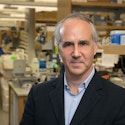Events
Upcoming Lectures
Past Lectures

Autism genetics: Where have we been and where are we going?
On April 10, 2018, Matthew State reviewed the progress that has been made in autism genetics over the past 10 years and the role that the Simons Simplex Collection (SSC) played in this (r)evolution. He also addressed the potential contribution of ongoing genomic studies including whole-genome sequencing as well as the challenges and opportunities of leveraging the genetic findings to identify pathophysiological mechanisms.

On the road to precision health: Brain-based biomarkers in autism spectrum disorder
Professor of Neurology and Pediatrics, Keck School of Medicine, University of Southern California
On 7 February 2018, Shafali Spurling Jeste provided a topical overview of the current state of research in autism biomarkers. She shared data from studies of autism biomarkers in three key areas: early risk prediction (studies of high-risk infants), heterogeneity within the autism spectrum and genetically defined subgroups within autism. Finally, she discussed the challenges around clinical trial design and development and considered how more objective measures of brain function can improve clinical trials.

Arousal, emotion regulation and challenging behaviors: Insights from the Autism Inpatient Collection
Chief of Clinical Enterprise, Boston Children’s Hospital
On 24 January 2018, Matthew Siegel drew upon a new resource, the Autism Inpatient Collection data set, to offer preliminary insights into the relationships between physiologic arousal, emotion dysregulation and the occurrence of challenging behaviors. Such behaviors may represent an attempt to modulate physiologic arousal in minimally verbal individuals with autism spectrum disorders.

Autism genetics: Searching for coherence
On 28 November 2017, Daniel Geschwind discussed his group’s use of RNA sequencing, chromatin structure and gene networks to help develop an understanding of potential convergent mechanisms in autism spectrum disorders.

Understanding autism and other neurodevelopmental disorders: From the embryo to brain organoids
On 1 November 2017, Paola Arlotta focused on the cerebral cortex and presented the challenges and opportunities of modeling human brain development using pluripotent stem cells within 3D human brain organoids. Building on developmental work in mice, such organoids promise a better understanding of complex neurodevelopmental conditions such as autism spectrum disorder.

Leveraging long-term health data and exome sequencing for autism-related gene discovery
On 11 October 2017, David Ledbetter discussed the progress made by Geisinger Health System’s Precision Health Center – in partnership with Regeneron Genetics Center – towards advancing research and innovation by leveraging electronic health data and exome sequence data. Such an approach has already led to the successful identification of new drug targets and improved prevalence estimates of common Mendelian conditions, including familial hypercholesterolemia, BRCA-related cancers and Lynch syndrome, as well as autism spectrum and neuropsychiatric copy number variant disorders.
- Previous Page
- Viewing
- Next Page